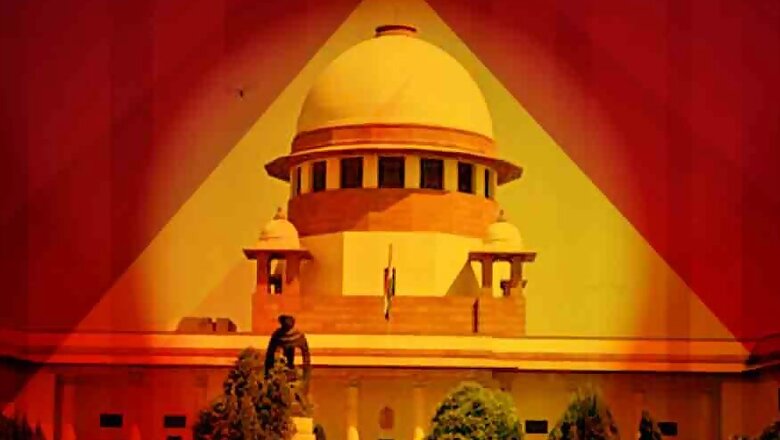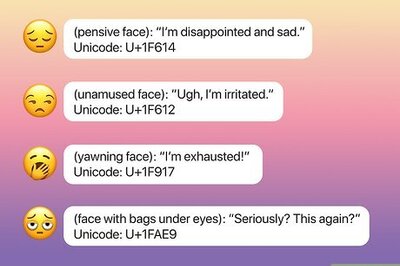
views
New Delhi: The central government on Tuesday told the Supreme Court that despite its "noble intentions", there cannot be a judicial order to either restrain persons from contesting elections prior to their conviction, or to direct political parties not to field such candidates.
Attorney General KK Venugopal submitted before a Constitution Bench that the laws already provided for when and how a person can be debarred from contesting polls, and that it was not for the courts to lay down new norms.
The top law officer shot down a suggestion made by the bench, headed by Chief Justice of India Dipak Misra, about issuing a directive to political parties against putting up candidates who have charges framed under serious offences such as rape, murder and corruption.
"Your intentions are very noble, but is it for the courts to say something like this? It will be doing a violence to the Representation of People Act and the freedom of a political party in a democratic set-up," said Venugopal.
The bench said that one suggestion was to let them fight polls as Independent candidates, but no party should give them a ticket and that could be one way of laying down a deterrent.
The A-G, however, did not accept this. “But that would have to be left to the wisdom of the political parties. And even if this court were to hold this, non-compliance can't have any consequences on the registration of such political parties since that would again be creating a new law," he submitted.
The bench replied: "We are not on deregistration or taking away symbol from a political party but on the responsibility of a political party in our polity. When a judicial mind has been applied and charges have been framed under serious sections, can this not be done?"
Venugopal responded in the negative. "The right to contest is also an electoral right. Are you going to deprive them of an important right to represent a constituency by debarring them even before they are convicted?" questioned the A-G.
He added that the court “cannot shut its eyes” to the cardinal principle of the presumption of innocence.
"The legal procedure is long-drawn so that a man falsely accused or even falsely charged gets ample opportunity to prove his innocence," he said.
When asked by the bench if the A-G's submissions should be construed as the government's disapproval of the Law Commission recommendations in this regard, Venugopal retorted that the government is yet to apply its mind, have deliberations and then arrive at a 'yes' or a 'no'.
After conclusion of the arguments, the court on Tuesday reserved its judgment on the PIL filed by NGO Public Interest Foundation.
The petition has maintained that there must be a stage prior to the conviction when a candidate should face disqualification.
Senior advocate Dinesh Dwivedi, representing the NGO, has said that a person, who has been charged with heinous offences after a prima facie case is found against him by a judicial order, should be debarred from contesting polls to ensure the purity of the electoral process and decriminalisation of politics.
The Constitution Bench included Justices Rohinton F Nariman, AM Khanwilkar, DY Chandrachud and Indu Malhotra.




















Comments
0 comment